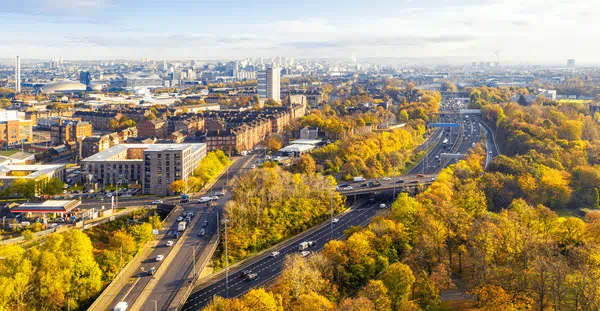As today’s water companies embrace the many challenges they face, to further improve performance and efficiencies, reduce costs for customers, protect the environment and support the communities they serve, fresh and exciting opportunities for innovation and collaboration are emerging almost every day.
The UK water sector is at the forefront of a digital revolution in the global water economy, impacting on every aspect of water. This ranges from management of sources, treatment technology and efficiency, consumption and customer engagement, through to re-use, collection and recovery of economically and environmentally important resources.
Game-changing technologies
The same game-changing technologies that are helping to optimise day-to-day performance are now also enabling water companies to invest in new programmes designed to deliver a broader social contribution and value. This is basically a new social contract with communities and wider society. Here in the UK, projects like the Lower Thames Crossing have social value at the heart of its business case, an important step as projects come under intense stakeholder scrutiny.
Arcadis recently supported Yorkshire Water to understand the wider value created through investment in climate change resilient infrastructure. We provided a proven approach to quantifying climate resilience into the client’s ‘six capitals’, which incorporates financial, social, natural, manufactured, intellectual and human capital, as well as an approach to integrate climate resilience with their existing decision-making process. Clearly water companies are taking climate change resilience seriously.
Using Artificial Intelligence to benefit the environment
The water sector’s increasing use of digital technology is essential to enable optimisation. Advances in sensor technology is delivering huge quantities of data from a more distributed and diverse range of sources. Developments in connectivity provide the means to move and combine this vast amount of real time data, while advances in data storage, analytics and processing power create the means of generating enhanced actionable insights, enabling improved decision making.
A great example is the use of data-driven Artificial Intelligence (AI). AI is increasingly being used to identify operational performance enhancements, such as improving the efficiency of energy intensive infrastructure – and this technology can also be used to provide wider environmental benefits.
Arcadis is currently trialling an AI-based tool that not only reduces electricity use, but also significantly cuts the release of nitrogen dioxide (NO2) from wastewater treatment plants. It is generally recognised that NO2 is 200-300 times worse for the environment than CO2 as a greenhouse gas.
Global collaboration
On the industry’s journey to carbon net zero, global collaboration is essential, not only to solve immediate operational problems, but to also create wider value. Arcadis is exploring the use of an Australian-sourced technology that converts methane from wastewater treatment into hydrogen that can be used to fuel a utility businesses’ vehicle fleet.
There are perspectives available within the global water sector and beyond. For example, in the Netherlands, the Rijkswaterstaat (the Department for Highways and Water) has been systematically driving sustainability into their investment programmes for more than a decade, reducing carbon emissions by 30%.
Similarly, for the regeneration of Bolton Town Centre, Arcadis used the Bankability Resilience Tool (BART) developed by our Dutch colleagues to demonstrate the benefits of green and blue infrastructure as part of an integrated approach to climate their resiliency programme. Integrating the green (soft areas, plants and trees) with the blue (watercourses, ponds, lakes and storm drainage) elements makes our urban spaces more resilient, pleasant and healthy places to live, work and play. Ultimately the project will deliver a benefit-cost ratio of 1.26 with most value being delivered to local businesses. It is also interesting to see how they are exploring dykes and other flood defences in innovative ways such as the incorporation of retail space delivering greater value to local communities.
As innovation continues to grow at pace and opportunities to collaborate widen, the UK water sector is well placed to grasp the opportunity to further optimise its assets and deliver increasing social value.




